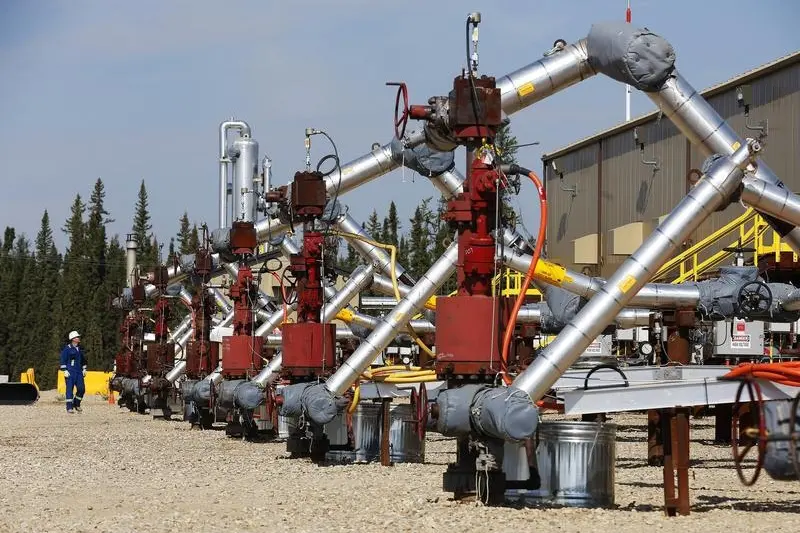PHOTO
Plans by Abu Dhabi to invest more than $25bn over the next five years to increase offshore oil production capacity look set to secure the emirate's position as a leading oil producer, amidst a global decrease in oil and gas capital expenditure.
The increased investment flow will involve some $2.5bn being spent annually on new offshore drilling activities, combined with an expansion of infrastructure to bring new wells on line, according to Qasem Al Kayoumi, manager of the offshore division of the exploration and production directorate of the Abu Dhabi National Oil Company (ADNOC).
The investments form part of a medium-term programme to boost output from the present level of around 3m barrels per day (bpd) to 3.5m bpd by 2019, with ADNOC planning to drill some 160 wells annually for the next few years, Al Kayoumi told media. "It is a considerable increase - the number of rigs has built up considerably in offshore, it could be more than a 50% increase," he said.
The state-owned oil company had initially aimed to increase capacity by 500,000 bpd by 2017, but the company announced in early June that it would reach only 3.4m bpd by the end of 2017 with the expansion project potentially not completed until 2019. "This is because of some normal delays in such a large project," Al Kayoumi told reporters at a conference. "There have been changes in scope."
Much of the investment to expand production capacity will be directed through the Abu Dhabi Marine Operating Company (ADMA-OPCO) - an ADNOC-led joint venture - and the Zakum Development Company (ZADCO), which is managing the opening of the Upper Zakum reserves, among the world's largest oil fields. At present the ADMA-OPCO and the ZADCO fields account for 1.2m bpd, a figure ADNOC has estimated will rise to 1.6m bpd by 2017 or 2018.
Price plunge no deterrent to investmentThe move by the emirate to ramp up investment to increase production is in line with regional players such as Kuwait and Saudi Arabia, but runs contrary to global trends. Oil services company Petrofac estimates that spending on new capacity is down by 20% or more globally after oil prices plunged from their highs of two years ago, but spending in the GCC remains solid. "In the Middle East ... we are seeing national oil companies maintaining strategic spending and therefore flat to modest growth in investment across the region," said Tim Well, CFO at Petrofac, quoted in May by regional media.
Nor has the recent decline in prices deterred the emirate's offshore energy producer from reducing investment levels, according to ADMA-OPCO CEO Ali Al Jarwan. "Despite the fall in oil price we have no plans to slow down in terms of our long term investment strategy, Al Jarwan told OBG. "We are still very much on track in terms of raising our production levels in order to achieve our targets."
These include continued investment in offshore rigs to support production growth and using advanced technology to help manage reservoirs and achieve recovery rates of 70%, he said.
Production at ADMA-OPCO's new offshore Nasr field began in late January, with a maximum output of 65,000 bpd forecast when the field − located about 130 km to the north-west of Abu Dhabi City − is fully developed. The company is also working to open up its Satah Al Razboot (SARB) offshore field, also to the north-west of the capital, with the facility to be operational by 2017. Earlier this year, oil services company Schlumberger was granted a $185m contract to provide well construction services for the SARB development, which is expected to add 100,000 bpd to the emirate's output.
The increased pace of investment and demand for rigs and services by Abu Dhabi will be welcome news for firms in the oil technology and support sector. Earlier this year ratings agency Moody's estimated that earnings in the oilfield services sector would fall by 12-17% if oil prices average $75 per barrel this year. Earnings could fall to as low as 30% should the average price be less than $60 - Brent crude was trading at $65 per barrel at the start of June.
Extending ageing fieldsWhile working on new deposits, producers are also investing in technology to extend the operational life of mature fields. Both gas and water injection are amongst techniques that can be used to boost pressure in older wells and enhance recovery. One further option that is being explored in Abu Dhabi is using CO2 injection rather than gas or water due to limited gas reserves, with feasibility studies being conducted to see if this route can be used as a long-term measure.
The move towards enhanced extraction will offer additional opportunities for companies able to deploy advanced recovery technology, with demand for such solutions set to grow in coming years as more of Abu Dhabi's established fields approach the later stages of their productive life.
© Oxford Business Group 2015





















